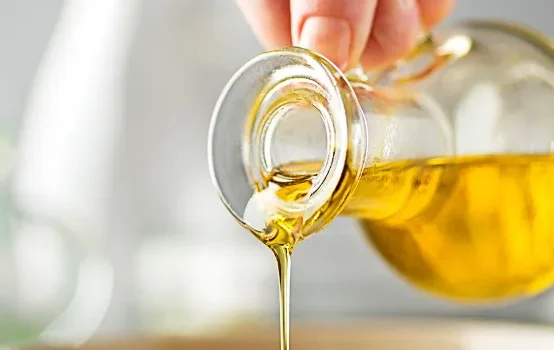When it comes to managing cholesterol through diet, the types of fats and oils you cook with can have a big impact. Oils rich in unhealthy saturated and trans fats can raise your LDL (“bad”) cholesterol levels, increasing the risk of heart disease. On the other hand, oils high in healthy monounsaturated and polyunsaturated fats can help lower LDL cholesterol and support heart health. Let’s explore which cooking oils you should choose and which ones to avoid for better cholesterol management.
How Cooking Oils Affect Cholesterol
To understand how oils influence cholesterol, it’s essential to know a bit about dietary fats. Cholesterol is a waxy substance found in your blood, and your body needs it to build healthy cells. However, high levels of cholesterol can increase the risk of heart disease.
LDL cholesterol is known as the “bad” cholesterol because it contributes to fatty deposits in your arteries. In contrast, HDL cholesterol helps remove LDL from your bloodstream. All cooking oils contain a mix of saturated, monounsaturated, and polyunsaturated fats. Saturated fats can raise LDL cholesterol, while monounsaturated and polyunsaturated fats help lower LDL and raise HDL cholesterol.
When cooking for better cholesterol levels, oils high in monounsaturated and polyunsaturated fats are ideal, while oils high in saturated and trans fats should be avoided to keep LDL levels in check.
The Best Cooking Oils for Cholesterol
Here are five cooking oils that are heart-healthy and beneficial for cholesterol management:
- Olive Oil: Olive oil is packed with monounsaturated fats, which can help reduce LDL cholesterol. It also contains antioxidants like oleocanthal that can reduce inflammation linked to LDL oxidation. Extra virgin olive oil has a mild flavor and a medium-high smoke point, making it perfect for sautéing, baking, and using in dressings.
- Sesame Oil: Rich in sesamin, sesame oil has been shown to lower LDL cholesterol. For the most benefits, choose unrefined sesame oil. It has a medium-high smoke point and is great for stir-frying or adding flavor to Asian-inspired dishes.
- Walnut Oil: Walnut oil is high in alpha-linolenic acid (ALA), an omega-3 fatty acid that helps protect your arteries and lower LDL cholesterol. It is best used in cold dishes like salad dressings, as heat can degrade its nutrients.
- Canola Oil: Despite its negative reputation, canola oil is low in saturated fat and offers cholesterol-lowering benefits. Studies show that replacing other fats with canola oil can reduce LDL levels. It has a neutral flavor and high smoke point, making it suitable for sautéing, baking, and stir-fries.
- Avocado Oil: With over 70% monounsaturated fat, avocado oil is excellent for lowering LDL cholesterol. It also contains lutein, an antioxidant that helps protect your arteries. Its mild flavor and high smoke point make it ideal for grilling, pan-searing, stir-frying, or baking.
Oils to Limit for High Cholesterol
While some oils help manage cholesterol, others can increase your LDL levels. Here are four oils to limit or avoid:
- Coconut Oil: Despite its popularity, coconut oil is high in saturated fat, with more than 80% of its fat content being saturated. Regular use of coconut oil can raise LDL cholesterol levels. Use it sparingly for special occasions, but not for daily cooking when managing cholesterol.
- Palm Oil: Found in many processed foods, palm oil is high in saturated fat (about 50%) and can raise LDL cholesterol. To avoid palm oil, check ingredient labels and choose alternatives like trans-fat-free vegetable oils.
- Partially Hydrogenated Oil: Often used in processed foods for longer shelf life, partially hydrogenated oils are a source of trans fats, which are harmful to cholesterol levels. Trans fats raise LDL and lower HDL cholesterol. Avoid foods that list partially hydrogenated oils, such as microwave popcorn and frozen pizza.
- Lard and Tallow: Animal-based fats like lard and beef tallow are high in saturated fats, which can negatively affect cholesterol levels. While you can still enjoy traditional recipes, consider substituting plant-based oils or vegetable shortening for a healthier alternative.
Conclusion
Managing cholesterol is essential for heart health, and the cooking oils you choose play a significant role in maintaining healthy cholesterol levels. Opt for oils rich in monounsaturated and polyunsaturated fats like olive oil, sesame oil, walnut oil, canola oil, and avocado oil. At the same time, limit oils high in saturated and trans fats, such as coconut oil, palm oil, partially hydrogenated oils, and animal fats. By making these simple adjustments in your cooking, you can support better cholesterol levels and overall heart health.











